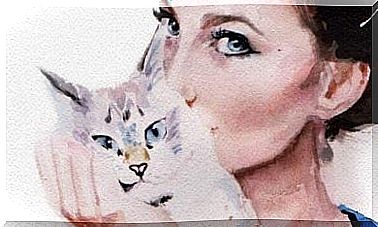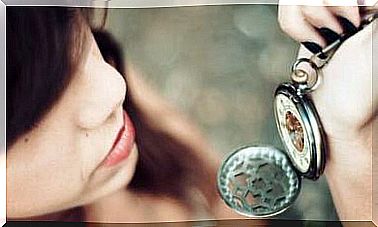There Are People Who Use A Magnifying Glass In Love, But They Need A Mirror
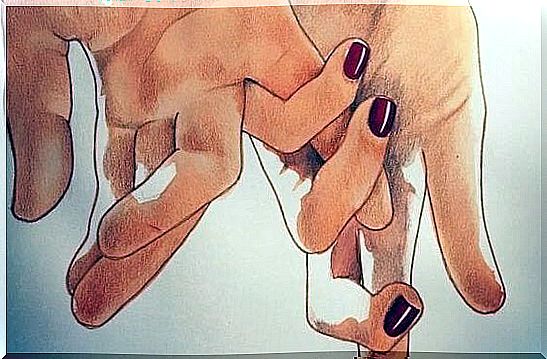
There are those in love who, in their relationships, act almost like real shooters. One of your most common strategies is to place a magnifying glass over your partner to point out their shortcomings, mistakes and supposed weaknesses. It is the paradigm of the coward, the person who does not understand that in love, more than magnifying glasses, we need mirrors.
In relation to affective relationships, no one can raise the banner of absolute wisdom. Most of us have rolled over the precipice of mistakes more than once, full of dreams and hopes, we are shipwrecked in the ocean of impossible loves and also in cowardly passions, those to which we do not surrender out of fear or simple indecision.
There is one type of relationship that often wreaks more havoc than any other: when one or even both partners act as authentic identity deconstructors. It is these profiles that focus your attention on everything that does not please or bother the couple, in order to objectify, ridicule and control the spouse. They do it because that’s how they take the reins, how they manage to make up for their wounded self-esteem.
Almost without realizing it, we are trapped in a hamster wheel, where the inertia itself sweeps us away, dilutes us and traps us in a dangerous dynamic of unhappiness. A dynamic where those who always carry a magnifying glass in their hand are unable to look in the mirror to discover their bottomless pits, their abysses of immaturity.
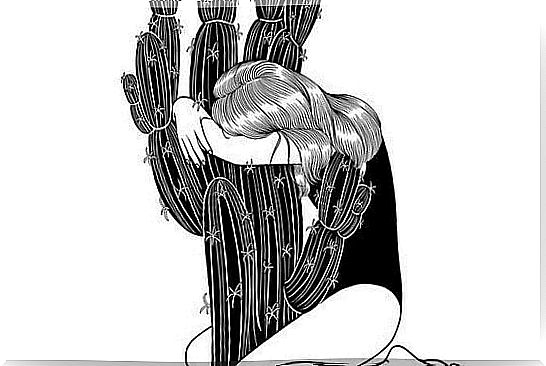
The complex survival of love: all the other person’s fault
Howard Markman is a professor of psychology at the University of Denver and one of the best-known researchers on couple relationships. In the publishing market, we have a large number of works by this professor illustrating with precision and originality many of the affective problems that occur in everyday life.
One of the most interesting insights Dr. Markman explains is that most people who go into couples therapy are convinced that all responsibility for problems and unhappiness experienced rests with the spouse. They believe the therapist will “cure” them, or more specifically, “cure” their partner’s wrong behavior. They usually expect the professional to agree with them and call their partner to “pull their ears” for their misbehavior.
However, behind a couple problem, there are usually no mental health problems, but there may be a problem in relational dynamics. A dynamic that was built by the two partners, through the way they relate.
For Dr. Howard Markman, complaints that come into the office related to the couple are often associated with certain deficiencies in emotional education and psychological skills. In this way, what is proposed is that, from a very early age, a specific area called “psychoeducation” be introduced into the curriculum of schools.
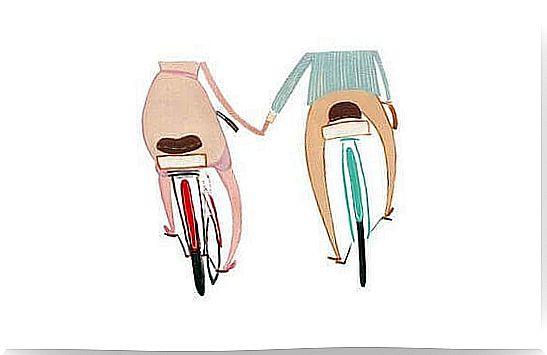
The aim of psychoeducation would be to provide strategies, tools and skills to be able to help ourselves. It would therefore be learning to look in the mirror to identify one’s own fears, insecurities, and revoke all rigid gender roles and schemes imposed by society.
We cannot forget, for example, that in matters of love there are those who let themselves be carried away by these prefabricated schemes, inherited from their families, where they assume that it is “better to remain silent and bear a little more”, than “if not he does what I want or he doesn’t love me, I get irritated and impose myself because I’m the boss”.
It is necessary to have self-knowledge to take care of ourselves and contribute with our best version and strengths for the success of couple relationships.
love can’t cure you if you don’t love yourself
In this rich, complex and ever-growing context formed by affective relationships, there is always a space for conflicts. Far from seeing them as something negative, like the virus that can give rise to a disease, we must take them as an engine that will allow us to get to know each other better in order to create a much stronger bond, a more resistant tissue.
Conflicts set in motion the most sensitive fibers of our being, but we often do so by placing the magnifying glass on the other’s supposed defects in an almost obsessive and delirious way. We act like this, without being aware of our “share” of emotional responsibility, without realizing that sometimes we go through life so naked and so cold that all we want is for someone to be our clothes, a shelter without cracks, a second skin capable of healing all wounds.
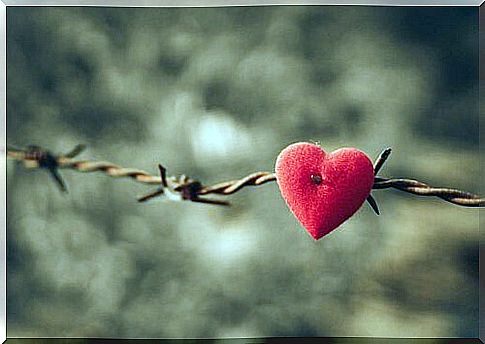
However, this formula never works. Those who act as a “giver”, who only feel useful when necessary, are anchored in a dependent relationship, in that hamster wheel we talked about at the beginning where, sooner or later, we will lack air, life and dignity. Because whoever is here to serve will always live under that demanding magnifying glass that seeks absolute perfection to nurture the voids and needs of others…. And what’s worse, you’ll never be satisfied.
We need to put ourselves in front of the mirror to find ourselves and our self-esteem again. Don’t let yourself be dragged into that territory where the price of being loved is unhappiness itself.




